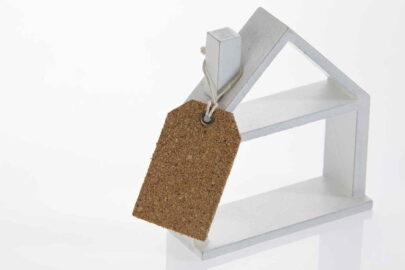The Nationwide Building Society has reported that house prices increased by 0.3% between October and November.
The mutual said the seasonally adjusted average price of a home is now £214,044.
Robert Gardner, Nationwide’s chief economist, said: “While house price growth picked up a little in November, it remained relatively subdued at 1.9%, up from 1.6% the previous month.
“Looking forward, much will depend on how broader economic conditions evolve. In the near term, the squeeze on household budgets and the uncertain economic outlook is likely to continue to dampen demand, even though borrowing costs remain low and the unemployment rate is near 40-year lows.
“If the uncertainty lifts in the months ahead and employment continues to rise, there is scope for activity to pick-up through next year. The squeeze on household incomes is already moderating and policymakers have signalled that, if the economy performs as they expect, interest rates are only expected to rise at a modest pace and to a limited extent in the years ahead.
“After falling by almost 60% in the wake of the financial crisis, there has been a significant pick up in construction in recent years. New build completions in England in 2017/18 reached 195,300, around 3% below 2007/08 levels.
“Moreover, the picture improves further if we add in additional dwellings that have been created by converting larger homes into more units and those created by ‘change of use’, such as turning former offices into flats. Indeed, on this broader measure, net additions to the housing stock are now just 0.6% below 2007 levels.
“The ‘change of use’ of buildings – i.e. from shops, offices and other commercial purposes, to homes – has provided a significant boost to supply in recent years. The change in government policy in 2014 to grant automatic permitted development rights to convert offices into residential properties has been a major factor, accounting for around half of dwellings created via change of use since its introduction.
“While 2017/18 saw a slowing in ‘change of use’ compared with the previous year, it still accounted for c30,000 dwellings, around 70% above 2007/08 level. In some areas, such as Nottingham and Bristol, ‘change of use’ accounted for around half of homes added over the past three years.”
Jonathan Samuels, CEO of Octane Capital, added: “For countless prospective buyers, Brexit has put everything on hold. Borrowing rates may be low and the jobs market strong, but a strong undercurrent of uncertainty is causing people to sit on their hands.
“Nobody is expecting rates to be hiked sharply, as the Bank of England has reiterated that point countless times over the past year. The worry is the economic fall-out of Brexit, the impact on real-world jobs, and whether 2019 could be 2009 all over again.
“While supply may have improved marginally, the extent of the deficit is still one of the main factors, if not the main factor, supporting prices. If supply were stronger, you suspect prices would be under a lot more downward pressure.”
